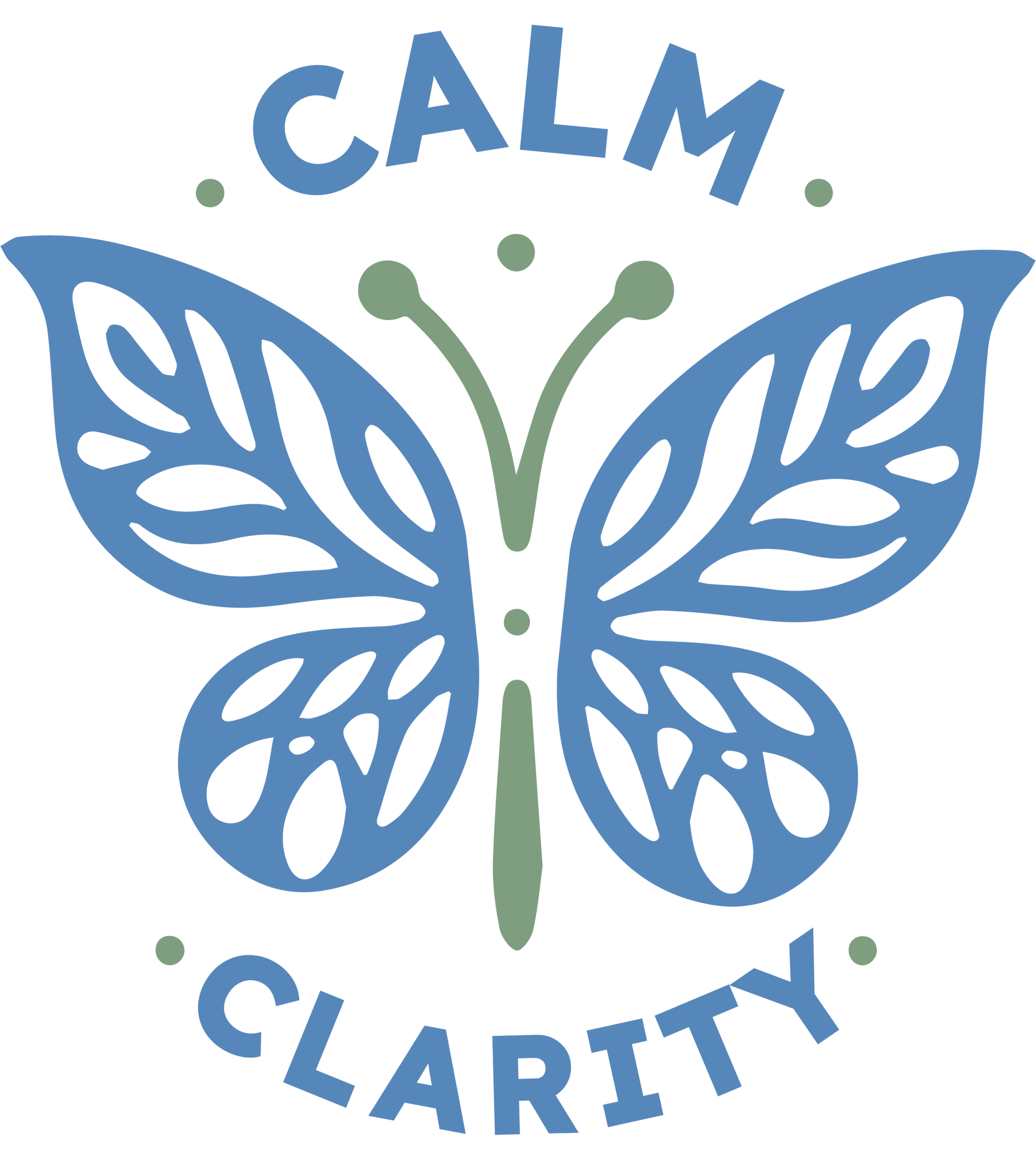Calm Clarity Therapy
The Language of the Body: Understanding Psychosomatic Symptoms and the Mind-Body Connection

Have you ever experienced a persistent headache during a period of high stress, or perhaps felt stomach troubles when facing a difficult situation, only to have medical tests come back clear? These experiences can be frustrating and confusing, but they often point to a fascinating and powerful phenomenon: psychosomatic symptoms. These are physical symptoms that are triggered or worsened by emotional distress, highlighting the profound and often underestimated connection between our thoughts, feelings, and bodily sensations, something particularly relevant in the often-fast-paced environment of Lakewood.
The term "psychosomatic" simply means "mind-body." It doesn't imply that the physical symptoms aren't real – they are very real and can be quite debilitating. Instead, it suggests that the origin or exacerbation of these symptoms lies in psychological factors like stress, anxiety, depression, unresolved emotional conflicts, or trauma. Our bodies are incredibly adept at communicating, and sometimes, when our emotions feel overwhelming or difficult to express directly, they can manifest as physical ailments.
How Emotions Translate to Physical Sensations:
The intricate pathways through which our emotions can trigger physical symptoms are complex and involve several interconnected systems:
- The Nervous System: When we experience stress or anxiety, our sympathetic nervous system kicks into "fight or flight" mode. This can lead to a cascade of physical responses like increased heart rate, muscle tension, rapid breathing, sweating, and digestive upset. Chronic emotional distress can keep this system in a state of heightened arousal, leading to persistent physical symptoms.
- The Endocrine System: Stress also triggers the release of hormones like cortisol. While short-term cortisol release is adaptive, prolonged stress can lead to chronic elevation of these hormones, which can impact various bodily functions, including the immune system, digestion, and sleep, potentially contributing to physical symptoms.
- The Immune System: There's growing evidence that chronic stress and negative emotions can weaken the immune system, making the body more susceptible to illness or exacerbating existing physical conditions.
- Muscle Tension: Unexpressed anger, frustration, or anxiety can often manifest as chronic muscle tension, leading to headaches, back pain, neck stiffness, and other musculoskeletal issues. Many residents of Lakewood who commute or have physically demanding jobs might find this connection particularly relevant.
- The Gut-Brain Axis: The strong connection between the gut and the brain means that emotional distress can directly impact digestive function, leading to symptoms like stomach aches, nausea, irritable bowel syndrome (IBS), and other gastrointestinal problems.
Recognizing Psychosomatic Symptoms:
Identifying psychosomatic symptoms can be challenging, as the physical sensations are genuine. However, certain patterns might suggest a mind-body connection:
- Symptoms that appear or worsen during periods of high stress or emotional distress.
- Symptoms that lack a clear medical explanation despite thorough investigation.
- Symptoms that fluctuate in intensity depending on your emotional state.
- Multiple, seemingly unrelated physical complaints.
- A history of significant stress, trauma, or mental health challenges.
The Importance of a Holistic Approach:
Understanding psychosomatic symptoms underscores the critical importance of a holistic approach to health that considers both the mind and the body. Dismissing physical symptoms as "just stress" can be invalidating and prevent individuals from receiving the care they need. Similarly, focusing solely on physical treatments without addressing underlying emotional factors may provide only temporary relief.
Finding Healing and Balance in Lakewood:
For residents of Lakewood experiencing psychosomatic symptoms, a comprehensive approach that integrates mental and physical well-being is key. This might involve:
- Seeking Therapy: Talking to a therapist can help identify and address underlying emotional issues, develop coping mechanisms for stress, and learn healthier ways to express emotions.
- Stress Management Techniques: Incorporating practices like mindfulness, meditation, yoga (readily available in many Lakewood studios), and deep breathing exercises can help regulate the stress response and reduce physical tension.
- Regular Exercise: Physical activity, whether it's hiking near Red Rocks or enjoying a walk around a local park, can help release tension, improve mood, and promote overall well-being.
- Mindful Movement: Practices like Tai Chi or gentle stretching can help increase body awareness and the connection between physical sensations and emotional states.
- Building a Strong Support System: Connecting with friends, family, or support groups in the Lakewood community can provide emotional validation and reduce feelings of isolation.
- Open Communication with Healthcare Providers: It's crucial to have open and honest conversations with your doctor about both your physical and emotional symptoms. A collaborative approach can lead to a more accurate understanding and effective management plan. Functional medicine can be a bit more holistic and provide a space to create this partnership and collaboration in care.
Psychosomatic symptoms serve as a powerful reminder that our minds and bodies are inextricably linked. By acknowledging this connection and addressing both our physical and emotional well-being, we can move towards greater health, resilience, and a deeper understanding of the intricate language of our own bodies.
Walk and talk therapy at Calm Clarity Therapy in Lakewood provides an additional outlet to process difficult emotions as you walk in calming nature with your therapist. You can book a session here: calmclaritytherapy.com




